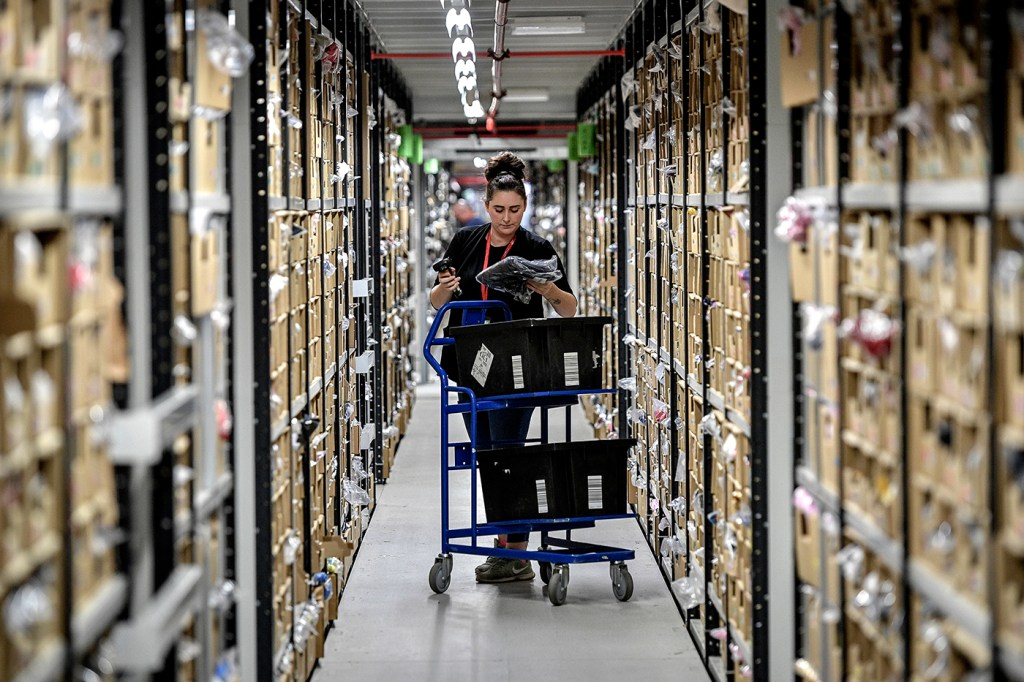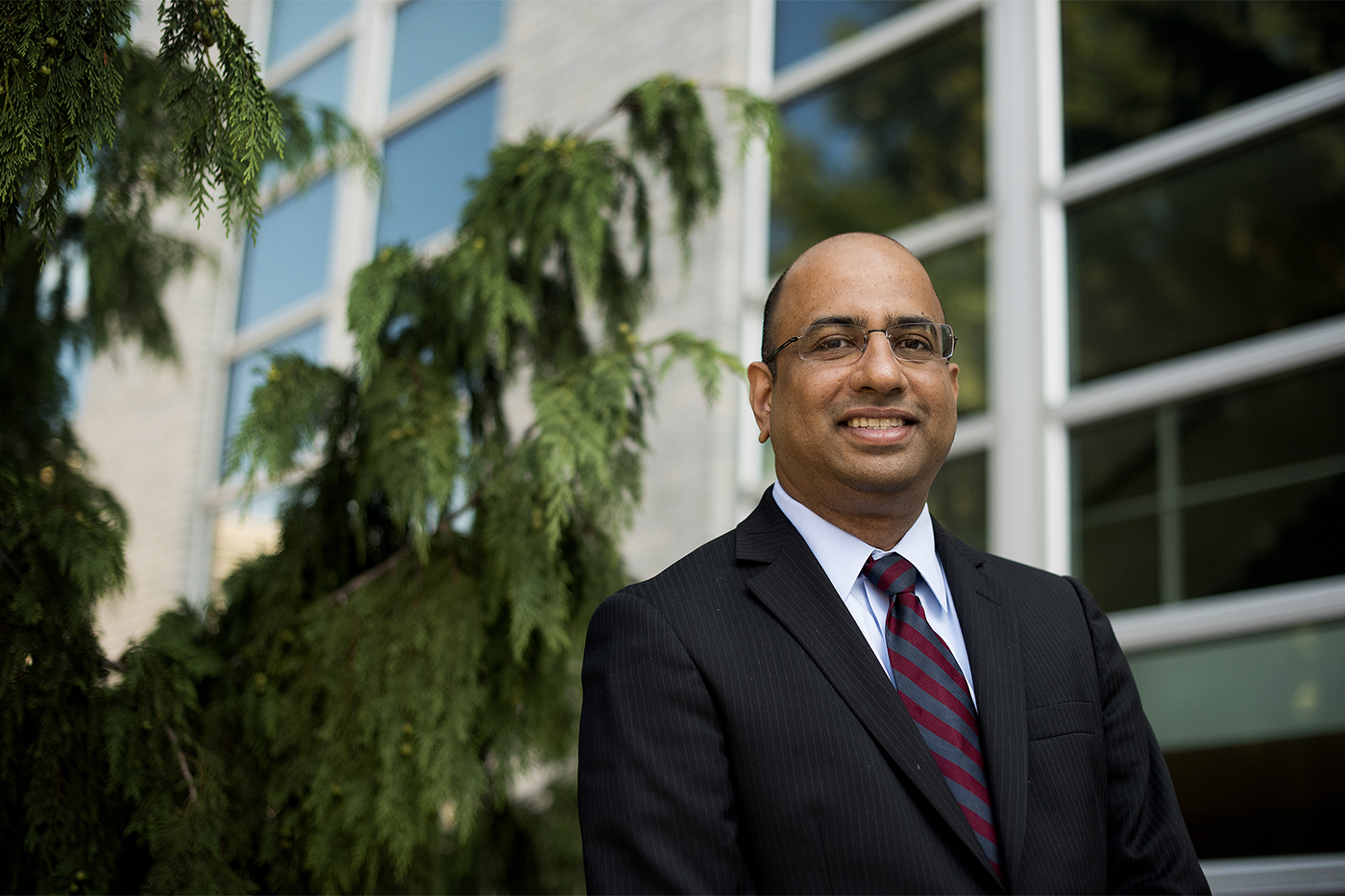Amazon is retraining 100,000 employees. What about the rest of the US workforce?

It’s an alarming paradox that exposes the insecurities of U.S. employees. More than 70 percent of Americans predict that breakthroughs in automation will downsize workforces and eliminate a variety of jobs, according to a recent Northeastern-Gallup poll.
And yet, in startling contrast, even more Americans—83 percent—express the belief in the same poll that their own careers will not be affected by these darkening clouds on the economic horizon.
This statement of seemingly blind optimism follows Amazon’s announcement on Thursday of a $700 million plan to re-educate one-third of its American workforce. The training programs in new technologies, which will be voluntary and predominantly free for 100,000 employees by 2025, amount to a promising and necessary adaptation, according to Mark Bernfeld, a professor of the practice in finance at Northeastern.
“These workers are smart people, they can learn to do other stuff,” says Bernfeld, an entrepreneur who teaches financial technology at Northeastern. “I happen to be a big believer that you can do more than what you have experienced. But it’s incumbent on employers to open the door and give workers that opportunity to learn the other stuff.”

Raj Echambadi, dean of the D’Amore-McKim School of Business. Photo by Matthew Modoono/Northeastern University
Amazon’s bold investment in maintaining a competitive workforce emerges as a constructive response to the attitudes expressed in the Northeastern-Gallup survey. Why is it that so many Americans are convinced that they will be spared by the industrial changes that are certain to reinvent the economy?
“It is actually a strength of the American workforce,” says Raj Echambadi, dean of the D’Amore-McKim School of Business. “They are one of the world’s most productive workforces, and I would say it is their net belief in their fundamental capabilities that makes them react this way. I would say it’s about adaptability: They’re saying, ‘I do have the capability to adapt.’”
That inherent optimism also contributes to an ignorance of the coming changes that will transcend the U.S., asserts Bernfeld. The global economy is in the throes of what is being called a “fourth industrial revolution,”as companies invest in automated technologies that promise to reduce costs and increase efficiency.
“This is an international problem, not just a U.S. issue, and in other countries around the world they’re going to feel this too—especially in the developed countries where the job profiles are going to be changing,” Bernfeld says. “I don’t think people really understand what artificial intelligence is capable of.”

Julia McCarthy, president and co-founder of Disrupt – The FinTech Initiative. Photo by Adam Glanzman/Northeastern University
In the financial industry, for example, Bernfeld anticipates that many relationships with customers will no longer be handled by humans, that investment advisors will be replaced by machines, and that online banking will make branch locations redundant.
Such advancements may pose more of a threat to older workers, says Julia McCarthy, the president and co-founder of Disrupt – The FinTech Initiative, and a senior in finance and communications at Northeastern.
“Coming from a school like Northeastern, we’re taught in this entrepreneurial kind of way to always be learning, and that learning doesn’t stop when you graduate,” says McCarthy. “Especially in the younger generations, we understand that things are going to change.”
Echambadi foresees the need for a collaborative partnership between higher education, employers, and government that can enable workers to invest in a 60-year curriculum of lifelong learning and specialized retraining programs, a need echoed by respondents to the poll in the U.S., the U.K., and Canada. He also believes that artificial intelligence can help schools like Northeastern provide customized programs to keep up with the times.
“I personally think it’s going to change higher education,” Echambadi says of artificial intelligence. “If we use it in the right way, it can help deliver personalized education at scale, which is very difficult to do right now. Personalized education at scale is the holy grail for us.”
The Northeastern-Gallup poll suggests a reticence among American workers to deal with the future. When asked how they would respond to layoffs, 49 percent say they would look for a similar job, as opposed to seeking a different role or changing their career.
“I think my generation is more excited by change and by all this new technology,” McCarthy says. “We don’t really see it as something that’s being taken away; it’s something new and exciting.
“But I’m saying that from the point of view of not having a career yet. So perhaps I’ll think differently later. But we definitely have a different mindset towards technology than my parents’ generation does, which I think will help us in the long run.”
At the end of Bernfeld’s recent course in financial technology, he asked for feedback on what his students had learned. Their group response surprised him.
“They said overwhelmingly that they now knew which jobs they don’t want—because those jobs might not be there in the future,” Bernfeld says. “They don’t know exactly which jobs they want. But they are very aware of the shift that is coming.”
For media inquiries, please contact Shannon Nargi at s.nargi@northeastern.edu or 617-373-5718.






